
Find Help
More Items From Ergsy search
-

How do concussions impact long-term health in rugby players?
Relevance: 100%
-

What support is available for rugby players who suffer concussions?
Relevance: 80%
-
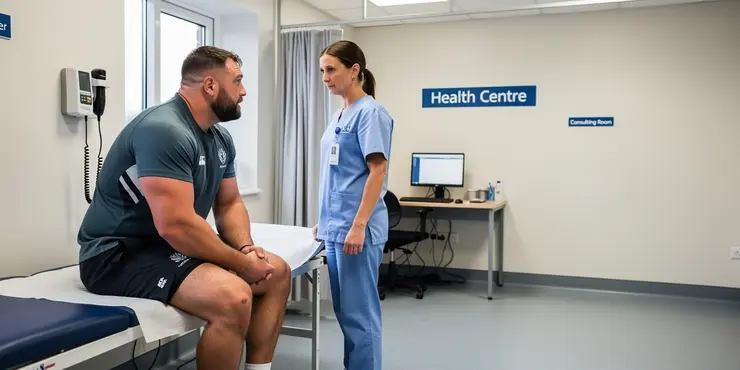
Are Concussions common in Rugby?
Relevance: 78%
-
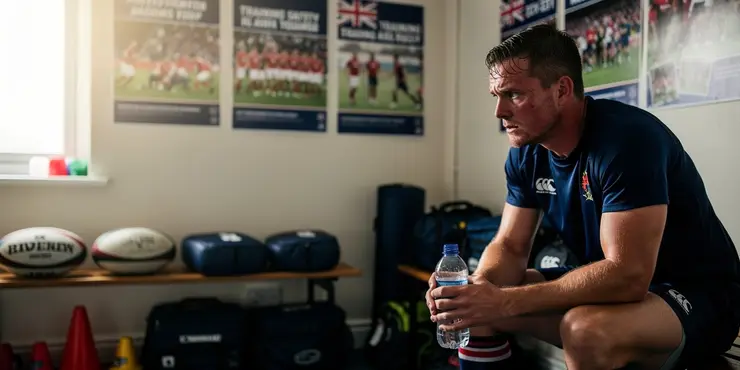
Is there a protocol for managing concussions in rugby?
Relevance: 74%
-
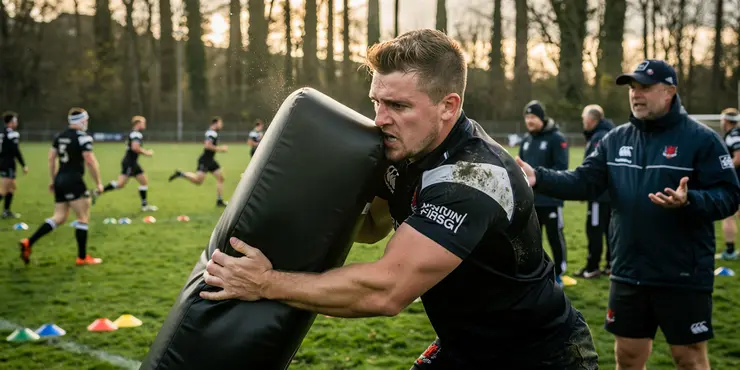
What causes concussions in rugby?
Relevance: 73%
-
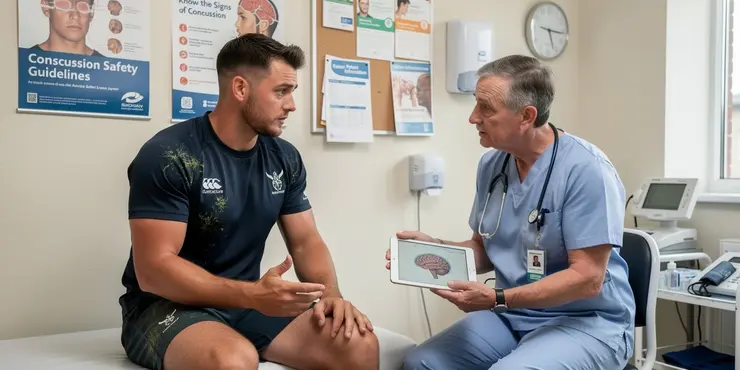
Are helmets required in rugby to prevent concussions?
Relevance: 69%
-
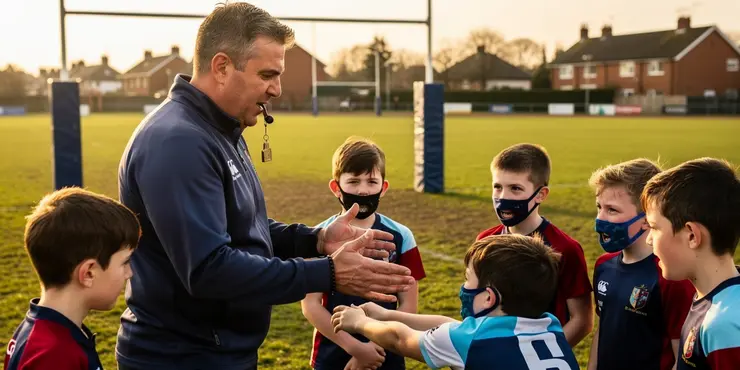
How can concussions be prevented in rugby?
Relevance: 68%
-
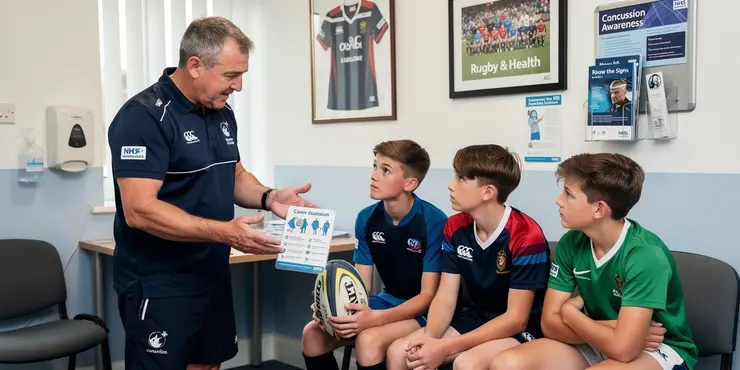
Is there a difference in concussion rates between amateur and professional rugby?
Relevance: 68%
-
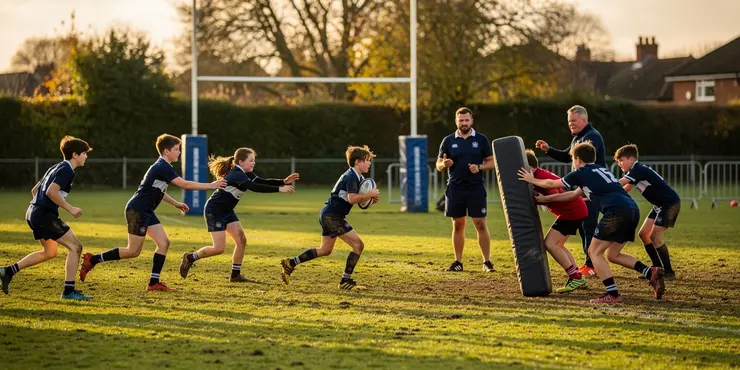
What age groups are most at risk for concussions in rugby?
Relevance: 67%
-
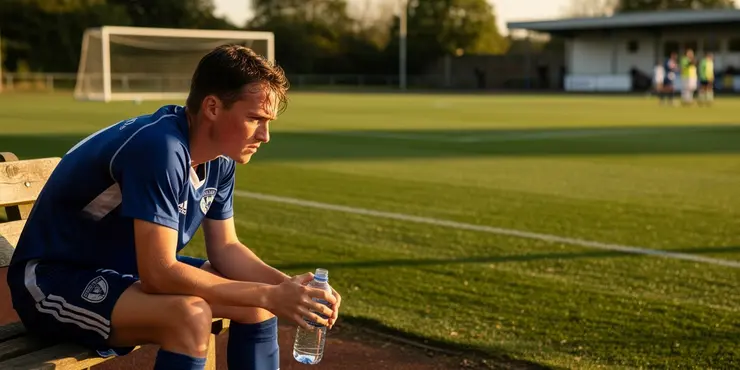
Can players return to play on the same day after a suspected concussion?
Relevance: 53%
-
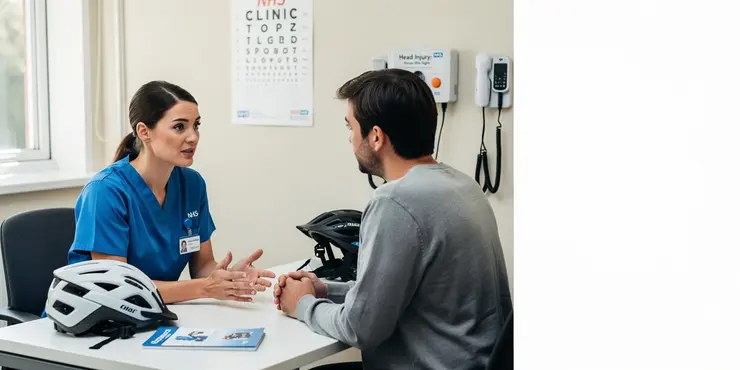
Is there any way to prevent concussions?
Relevance: 42%
-
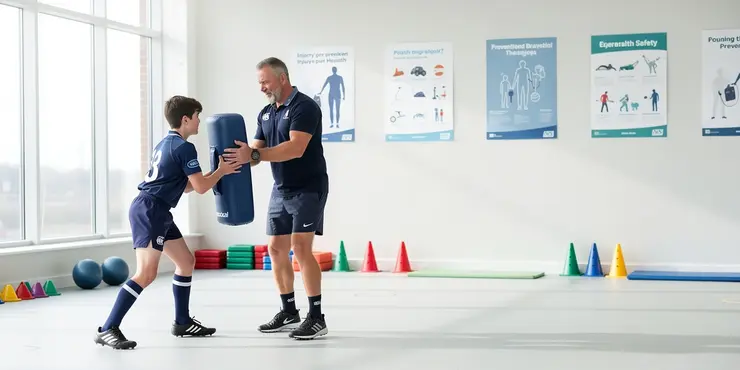
How can concussions be prevented?
Relevance: 41%
-
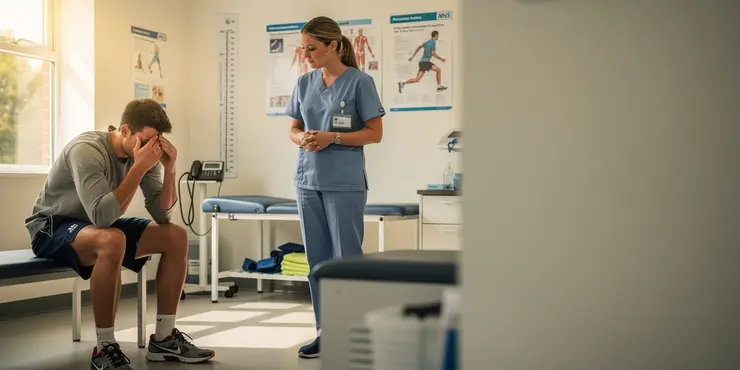
What is Concussion?
Relevance: 38%
-

Can concussions lead to mental health issues?
Relevance: 38%
-
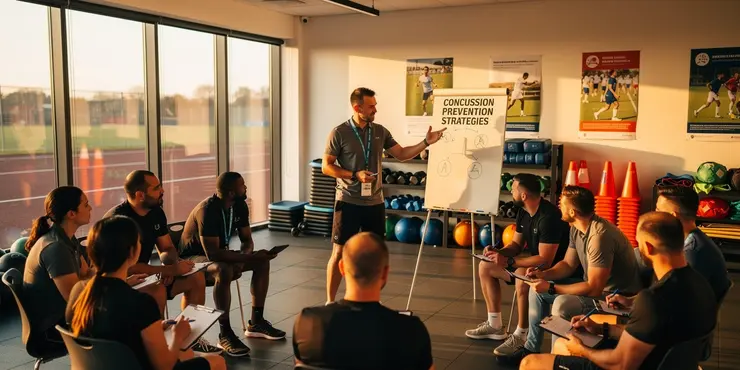
Is training available for coaches to help prevent concussions?
Relevance: 38%
-
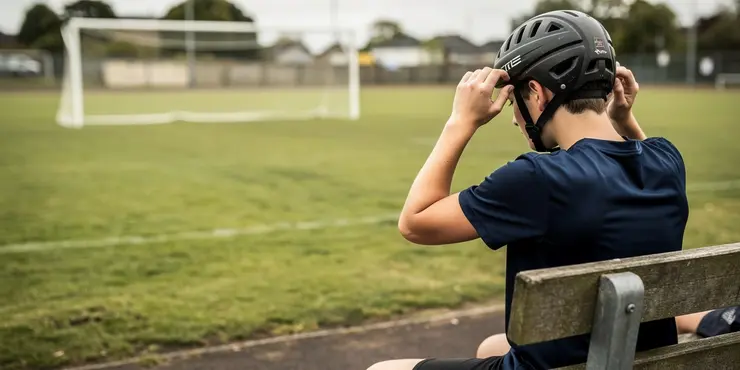
How can concussions be prevented?
Relevance: 37%
-
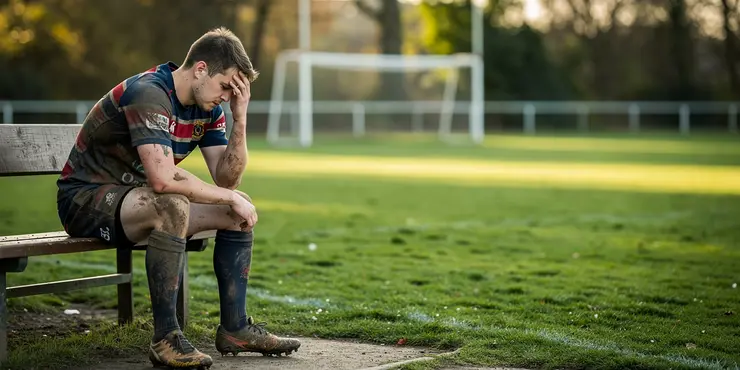
Can playing sports increase the risk of a concussion?
Relevance: 36%
-
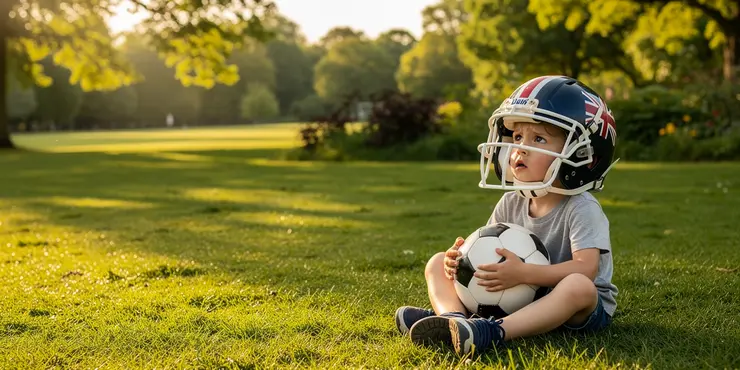
Are children more susceptible to concussions than adults?
Relevance: 35%
-

What role do schools play in managing concussions?
Relevance: 32%
-

Is headache a symptom of a concussion?
Relevance: 31%
-

How is a concussion diagnosed?
Relevance: 28%
-

Can a concussion cause memory problems?
Relevance: 28%
-

How is a concussion diagnosed?
Relevance: 28%
-

What are common symptoms of a concussion?
Relevance: 27%
-

Is it safe to sleep after a concussion?
Relevance: 27%
-

Is it safe to sleep after a concussion?
Relevance: 27%
-

When is it safe to return to normal activities after a concussion?
Relevance: 26%
-

Can concussions occur without a direct blow to the head?
Relevance: 25%
-

Should people with a concussion avoid screens and technology?
Relevance: 24%
-

When is it safe to return to normal activities after a concussion?
Relevance: 23%
-

What immediate steps should be taken if someone has a concussion?
Relevance: 23%
-

Can drink spiking cause long-term health effects?
Relevance: 23%
-

Can Lyme disease cause long-term health problems?
Relevance: 18%
-

Does ketamine have long-term effects?
Relevance: 18%
-

Are there any long-term effects of using Ozempic?
Relevance: 18%
-

What are the long-term goals of the sugar tax?
Relevance: 18%
-

Are there any long-term effects of gonorrhoea?
Relevance: 18%
-

What are the long-term effects of a heart attack?
Relevance: 17%
-

Are there any long-term effects of Chikungunya infection?
Relevance: 17%
-

Can meningitis cause long-term complications?
Relevance: 17%
The Long-Term Impact of Concussions on Rugby Players
Understanding Concussions in Rugby
Rugby is a high-impact sport that poses a considerable risk of concussions to players. A concussion is a type of traumatic brain injury caused by a blow to the head or a violent shaking of the head and upper body. These injuries are particularly concerning in rugby due to the frequent tackles, scrums, and physical intensity of the game. Although players are equipped with protective gear, the nature of contact sport increases the likelihood of head injuries.Immediate and Short-Term Effects
In the short term, concussions can lead to cognitive symptoms such as confusion, headache, dizziness, nausea, and difficulty concentrating. Players may also experience memory loss regarding the injury event. It's critical for rugby players to be properly assessed and given time to recover before returning to play, as repeated concussions can exacerbate symptoms and slow recovery.Long-Term Health Consequences
Recurrent concussions can have significant long-term consequences for rugby players. Studies have shown an increased risk of developing chronic traumatic encephalopathy (CTE), a degenerative brain condition associated with repeated head injuries. Players may also face ongoing cognitive challenges, emotional instability, and behavioral changes. Symptoms can include memory loss, depression, aggression, and progressive cognitive decline.Mitigation Strategies and Awareness
To mitigate long-term health impacts, rugby organisations in the UK are implementing strict concussion protocols. These include baseline testing, educating players and coaches on the importance of reporting symptoms, and enforcing mandatory rest periods. Advanced helmet designs and rule modifications aim to reduce head impacts. Raising awareness about the seriousness of concussions helps to ensure players take the necessary precautions.Conclusion
Concussions in rugby present a considerable risk to players' long-term health. Ongoing research and improved safety protocols are critical in managing and reducing these risks. It is vital for players, teams, and governing bodies to prioritise player welfare to prevent long-term adverse health outcomes related to concussions in rugby.How Concussions Affect Rugby Players Over Time
What is a Concussion in Rugby?
Rugby is a tough sport. Players can get hurt, especially their heads. A concussion happens when the brain is hurt. This can be from a hit to the head. In rugby, players often tackle and run into each other. This means concussions can happen a lot. Even with helmets, players can still get hurt.What Happens Right After a Concussion?
Right after a concussion, players might feel confused. They might have a headache or feel dizzy. Sometimes they feel sick or can't think well. They might forget things that just happened. Players need to rest and see a doctor. It's important they don't play again too soon, or they could get hurt more.How Do Concussions Affect Health Later?
Having many concussions can cause big problems later. Some players might get a disease in their brain called CTE. This happens from getting hit in the head a lot. They might have trouble remembering things or feel very sad or angry. They might find it hard to think clearly as they get older.How Can We Make Rugby Safer?
In the UK, rugby teams are working hard to keep players safe. They have rules for checking if a player has a concussion. They teach the players and coaches to speak up if someone feels hurt. New helmets and rule changes help reduce hits to the head. It's important to talk about how serious concussions are. This helps players take care of themselves.The Importance of Safety in Rugby
Concussions can be a big danger for rugby players. Better safety rules and ongoing research are helping to lower the risks. It's very important that everyone in rugby—from players to coaches to the people in charge—cares about player safety. This helps stop bad health problems from concussions.Frequently Asked Questions
What is a concussion?
A concussion is a type of traumatic brain injury caused by a bump, blow, or jolt to the head that can alter brain function.
How common are concussions in rugby players?
Concussions are relatively common in rugby due to the physical nature of the sport, with incidence rates varying across different levels of play.
What are the immediate symptoms of a concussion?
Symptoms can include headaches, confusion, dizziness, nausea, balance problems, memory issues, and sensitivity to light or noise.
How do concussions affect rugby players in the long term?
Long-term effects can include chronic headaches, cognitive impairments, depression, and an increased risk of neurodegenerative disorders.
Can repeated concussions lead to permanent brain damage?
Yes, repeated concussions can cause cumulative brain damage and increase the risk of Chronic Traumatic Encephalopathy (CTE).
What is Chronic Traumatic Encephalopathy (CTE)?
CTE is a progressive brain condition thought to be caused by repeated head injuries. It is associated with memory loss, confusion, and behavioural changes.
Are professional rugby players more at risk than amateurs?
Professional players may be at greater risk due to the higher frequency and intensity of play, but all rugby players can be affected by concussions.
What steps can rugby players take to protect themselves from concussions?
Players can wear protective gear, follow correct tackling techniques, and adhere to return-to-play protocols after injury.
How is a concussion diagnosed?
A concussion is diagnosed based on clinical assessment, including checking symptoms and applying assessment tools like SCAT5.
What is the typical recovery time from a concussion?
Recovery time can vary but typically lasts from a few days to several weeks. Following medical advice and rest is crucial for recovery.
Can concussions lead to mental health issues?
Yes, concussions can increase the risk of anxiety, depression, and other mental health issues in affected individuals.
What research is being done on concussions in rugby?
Ongoing research includes studying the impact of concussions, the effectiveness of protective equipment, and improving diagnostic methods.
How have rugby regulations changed to address concussions?
Regulations now include enhanced protocols for head injury assessment, stricter return-to-play rules, and mandatory concussion training for staff.
Are there any long-term studies on former rugby players with concussions?
Yes, several long-term studies are tracking former players to understand the prevalence of issues like CTE and other cognitive impairments.
What should a player do if they suspect a concussion during a game?
They should stop playing immediately and seek medical assessment as soon as possible to prevent further injury.
What is a concussion?
A concussion is a kind of head injury. It happens when your brain gets a hard bump or shake. This can make you feel dizzy or confused.
If you think you have a concussion, tell an adult you trust. They can help you see a doctor.
Using tools like pictures or videos can help you learn more about concussions. You can also talk to a teacher or a health helper to understand better.
A concussion happens when you hit your head. It can hurt your brain and change how it works.
How often do rugby players get head injuries?
Rugby is a sport where players sometimes hit their heads. This can cause a type of head injury called a concussion.
To make it easier to understand:
- Think of a concussion like a big bump inside your head. It can make you feel dizzy or confused.
- Rugby players sometimes get concussions because the game is rough.
Here are some tips to help:
- If you play rugby, wear protective gear like a helmet.
- If you feel dizzy or your head hurts after playing, tell an adult.
- Rest is important if you have a concussion. You might need to stop playing for a while.
Players often get hits to the head in rugby because it is a rough sport. How often this happens can change depending on the age and level of the players.
What signs show that someone has a concussion right away?
Signs you might notice are feeling like your head hurts, feeling mixed up, feeling like the room is spinning, feeling sick in your tummy, having trouble staying steady, forgetting things, and being bothered by bright lights or loud sounds.
How do head injuries hurt rugby players after a long time?
When rugby players get hit in the head, it is called a concussion.
Concussions can be bad for the brain.
These brain injuries can cause problems that last a long time.
Players might have trouble remembering things or feel dizzy.
They might also get headaches or feel sad.
It is important to be careful and protect players' heads.
Tools, like soft helmets and safe play rules, can help keep players safe.
Talking to doctors is very important if a player has a head injury.
Over a long time, some problems can be:
-Bad headaches that come back again and again.
-Trouble with thinking and remembering things.
-Feeling very sad or depressed.
-Getting brain illnesses when you get older.
If you have these problems, talk to a doctor. They can help. Try writing things down to remember better or use reminder apps. Exercise and seeing friends might help too.
Can getting hit in the head many times hurt your brain forever?
Yes, getting hit in the head many times can hurt your brain. It can make you more likely to have a disease called CTE later on.
What is CTE?
CTE is a brain problem. It happens after a person gets hit on the head many times. This can cause memory loss, mood changes, and other issues.
People like athletes, who play contact sports, can get CTE more often. If you are worried about CTE, talk to a doctor.
To help understand more about CTE, you can:
- Watch simple videos about CTE.
- Ask a friend or family member to explain it.
- Use pictures to learn words related to CTE.
CTE is a brain problem that happens when you hurt your head a lot. It can make you forget things, feel confused, and act differently.
Do people who play rugby for a job get hurt more than people who play for fun?
Professional rugby players might get hurt more because they play a lot and it's very tough. But all rugby players can get head injuries called concussions.
How can rugby players stay safe from head injuries?
Rugby players should follow these steps to keep their heads safe:
- Wear a helmet: Use a helmet that fits well to protect your head.
- Learn safe techniques: Practice safe ways to tackle and play.
- Follow the rules: Always play by the rules to avoid getting hurt.
- Use mouthguards: Mouthguards help protect your head and teeth.
- Rest if hurt: If you get hit, take a break and see a doctor.
It can also help to talk to a coach, use videos for learning, or ask questions if you don’t understand.
Players can wear safety gear, learn how to tackle the right way, and wait until they are fully better before playing again after getting hurt.
How do doctors know if you have a concussion?
Doctors check your head to see if you have a concussion.
They look at:
- How you feel
- If you remember things
- Your balance
- Your eyesight
Doctors might use a flashlight to look in your eyes. They might ask you questions or ask you to do simple tasks. This helps them know if your brain is okay.
Sometimes, doctors use special machines to take pictures of your brain.
If you think you have a concussion, tell an adult. They can help you see a doctor.
A concussion is when you hurt your head and it affects your brain. Doctors find out if you have a concussion by looking for signs, asking how you feel, and using tools like SCAT5 to help them check.
How long does it take to get better after a concussion?
Getting better after a concussion can take time. Most people feel better in a few weeks. Some might take longer. Everyone is different.
Here are some tips to help you:
- Rest and take it easy. Don't do too much too soon.
- Sleep well. Sleeping helps your brain heal.
- Tell an adult if you feel unwell.
- See a doctor if things don't get better.
Support tools can help. You can:
- Use a calendar to keep track of how you feel.
- Ask someone to help you with school work.
- Listen to calm music if you feel stressed.
Getting better can take different amounts of time. It might take a few days or sometimes a few weeks. It is really important to listen to the doctor and get lots of rest to help you feel better.
Can a bang on the head cause mental health problems?
Many people want to know if a hard hit to the head, called a concussion, can make you feel sad, worried, or act differently. Getting help from a doctor or talking to someone you trust can help. You can use drawings or simple words to share how you feel. It’s important to rest and give your brain time to heal.
Yes, getting a bump on your head can make you feel worried or sad. It can also cause other problems with how you feel.
What are people studying about head injuries in rugby?
Doctors and scientists are looking at what happens to the brain when rugby players get hit in the head. They want to understand how to make rugby safer.
They use special tools to check players' brains after they are hit. They also look at ways to help players heal faster.
Some good tools that can help learn more are:
- Easy-to-read books about the brain and sports
- Videos that explain head injuries in simple words
Remember to always wear safety gear when playing sports to protect your head!
Scientists are trying to learn more about head injuries, how well helmets work, and how to find out if someone is hurt.
How have rugby rules changed to make players safer from head injuries?
Rugby is a game where players can get hurt. One big problem is head injuries, called concussions.
To help keep players safe, the people who make rugby rules have changed some things. Here's how:
- They teach players how to tackle safely so they don't hurt their heads.
- Referees watch games closely and can stop them if someone might have a head injury.
- Players who get hit in the head have to rest and get checked by a doctor before playing again.
If you play rugby or watch it, here are two things to help you understand more:
- Ask someone to explain the rules if you’re unsure.
- Watch videos that show how to play safely.
There are new rules to keep people safe. These rules have special steps to check if someone has hurt their head. There are also stricter rules about when a player can play again after a head injury. Staff must learn how to handle concussions properly.
Have studies checked how rugby players feel years after having head injuries?
Yes, there are studies that watch former players for a long time. They check how many have brain problems like CTE and other thinking troubles.
What to do if a player thinks they have a concussion during a game?
If a player thinks they might have a concussion, they should:
- Stop playing the game right away.
- Tell a coach or adult what happened.
- Seek medical help to be checked by a doctor.
- Rest and avoid physical activities until they are better.
It is important to listen to the doctor's advice. It is also helpful to use picture cards or get help from someone they trust to understand what to do next.
They should stop playing right away. They need to see a doctor soon to make sure they don't get more hurt.
Useful Links
This website offers general information and is not a substitute for professional advice.
Always seek guidance from qualified professionals.
If you have any medical concerns or need urgent help, contact a healthcare professional or emergency services immediately.
Some of this content was generated with AI assistance. We’ve done our best to keep it accurate, helpful, and human-friendly.
- Ergsy carfully checks the information in the videos we provide here.
- Videos shown by Youtube after a video has completed, have NOT been reviewed by ERGSY.
- To view, click the arrow in centre of video.
- Most of the videos you find here will have subtitles and/or closed captions available.
- You may need to turn these on, and choose your preferred language.
- Go to the video you'd like to watch.
- If closed captions (CC) are available, settings will be visible on the bottom right of the video player.
- To turn on Captions, click settings .
- To turn off Captions, click settings again.
More Items From Ergsy search
-

How do concussions impact long-term health in rugby players?
Relevance: 100%
-

What support is available for rugby players who suffer concussions?
Relevance: 80%
-

Are Concussions common in Rugby?
Relevance: 78%
-

Is there a protocol for managing concussions in rugby?
Relevance: 74%
-

What causes concussions in rugby?
Relevance: 73%
-

Are helmets required in rugby to prevent concussions?
Relevance: 69%
-

How can concussions be prevented in rugby?
Relevance: 68%
-

Is there a difference in concussion rates between amateur and professional rugby?
Relevance: 68%
-

What age groups are most at risk for concussions in rugby?
Relevance: 67%
-

Can players return to play on the same day after a suspected concussion?
Relevance: 53%
-

Is there any way to prevent concussions?
Relevance: 42%
-

How can concussions be prevented?
Relevance: 41%
-

What is Concussion?
Relevance: 38%
-

Can concussions lead to mental health issues?
Relevance: 38%
-

Is training available for coaches to help prevent concussions?
Relevance: 38%
-

How can concussions be prevented?
Relevance: 37%
-

Can playing sports increase the risk of a concussion?
Relevance: 36%
-

Are children more susceptible to concussions than adults?
Relevance: 35%
-

What role do schools play in managing concussions?
Relevance: 32%
-

Is headache a symptom of a concussion?
Relevance: 31%
-

How is a concussion diagnosed?
Relevance: 28%
-

Can a concussion cause memory problems?
Relevance: 28%
-

How is a concussion diagnosed?
Relevance: 28%
-

What are common symptoms of a concussion?
Relevance: 27%
-

Is it safe to sleep after a concussion?
Relevance: 27%
-

Is it safe to sleep after a concussion?
Relevance: 27%
-

When is it safe to return to normal activities after a concussion?
Relevance: 26%
-

Can concussions occur without a direct blow to the head?
Relevance: 25%
-

Should people with a concussion avoid screens and technology?
Relevance: 24%
-

When is it safe to return to normal activities after a concussion?
Relevance: 23%
-

What immediate steps should be taken if someone has a concussion?
Relevance: 23%
-

Can drink spiking cause long-term health effects?
Relevance: 23%
-

Can Lyme disease cause long-term health problems?
Relevance: 18%
-

Does ketamine have long-term effects?
Relevance: 18%
-

Are there any long-term effects of using Ozempic?
Relevance: 18%
-

What are the long-term goals of the sugar tax?
Relevance: 18%
-

Are there any long-term effects of gonorrhoea?
Relevance: 18%
-

What are the long-term effects of a heart attack?
Relevance: 17%
-

Are there any long-term effects of Chikungunya infection?
Relevance: 17%
-

Can meningitis cause long-term complications?
Relevance: 17%


